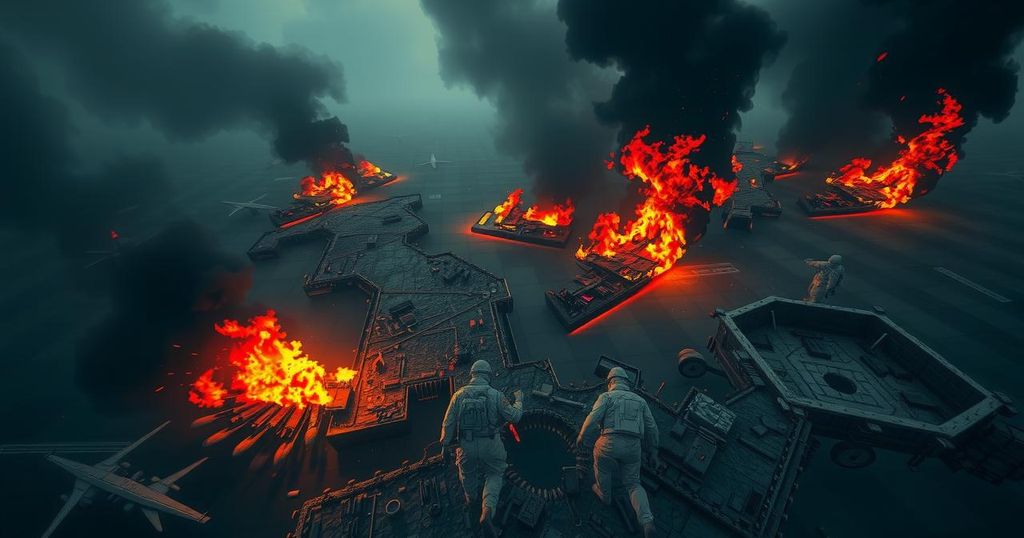Tensions in the Middle East heighten with Israel on high alert for Iranian retaliation following military operations. Diplomatic efforts by US officials face skepticism as violence continues in Gaza and Lebanon, leading to significant civilian casualties and humanitarian issues. Amidst this, Israel implements restrictions on UN aid in Gaza, worsening the humanitarian crisis.
The situation in the Middle East remains critical as tensions escalate between Israel and Iran amid ongoing violence involving Hezbollah in Lebanon and militant groups in Gaza. Israel is reportedly maintaining a heightened state of alert for potential Iranian retaliation following their recent military actions, which involve strikes on Iranian positions. Diplomatic efforts by US officials aim to mitigate further conflict and foster a ceasefire in the region, although doubts persist regarding the effectiveness of these initiatives before the upcoming US presidential election. In Lebanon, Israeli strikes in response to deadly Hezbollah rocket fire have indicated a continuing conflict, despite reports of optimism around a potential ceasefire agreement. Israeli military operations have resulted in significant casualties in Gaza, with airstrikes leading to the deaths and injuries of numerous civilians, including women and children. Furthermore, humanitarian concerns are growing as the United Nations warns that Israel’s ban on the UN Agency for Palestinian Refugees (UNRWA) will exacerbate the severe food crisis facing millions in Gaza. Reports from Gaza indicate that the region is suffering from extensive destruction as hospitals are attacked, and basic medical supplies are destroyed, worsening the humanitarian crisis. The international community remains apprehensive as the violence seems far from resolution, with regional leaders and US diplomats working towards finding an end to the hostilities.
The ongoing conflict in the Middle East, particularly between Israel and various militant groups, including those backed by Iran, has been characterized by sporadic escalations of violence. The recent Israeli airstrikes are part of a broader pattern of retaliation against Iran’s military support for groups like Hezbollah in Lebanon and Hamas in Gaza. The geopolitical intertwining of these parties has rendered peace efforts increasingly vital yet complicated. Moreover, the upcoming US presidential election adds an additional layer of urgency and uncertainty to the situation, as both domestic and international stakeholders weigh their options and strategies moving forward. Economic and humanitarian ramifications of military actions in the region are profound, affecting hundreds of thousands in terms of displacement and access to essential resources. As the international community calls for peaceful resolutions, legal and ethical questions about military engagements and humanitarian assistance continue to emerge. Thus, understanding the layered history and current dynamics is essential to grasp the full implications of the ongoing crises.
In summary, the recent developments in the Middle East signify a precarious state of affairs between Israel, Iran, and their respective affiliated groups. Despite ongoing diplomatic efforts from the United States to establish a ceasefire and reduce hostilities, the likelihood of imminent peace remains fraught with challenges. The substantial loss of life and humanitarian devastation in Gaza underscores the urgency for international intervention and support, particularly as the geopolitical landscape shifts with the approaching US elections. As the situation unfolds, the world watches closely, hoping for a resolution that serves the interests of peace and stability in the region.
Original Source: www.cnn.com






